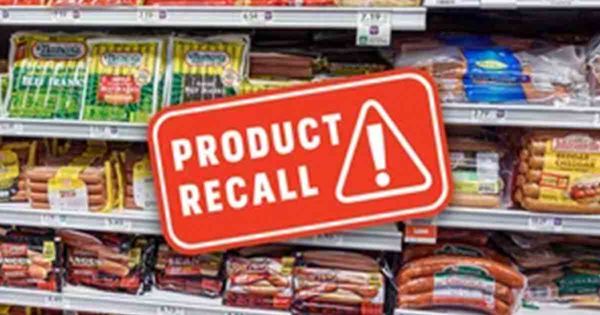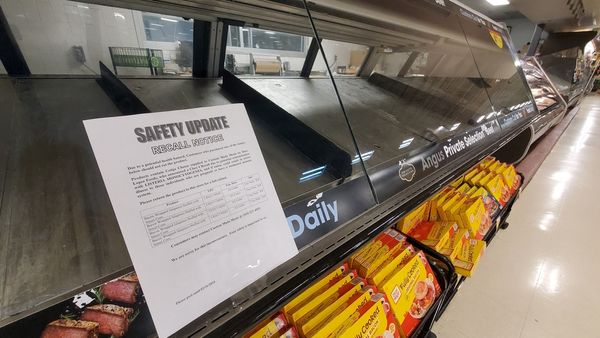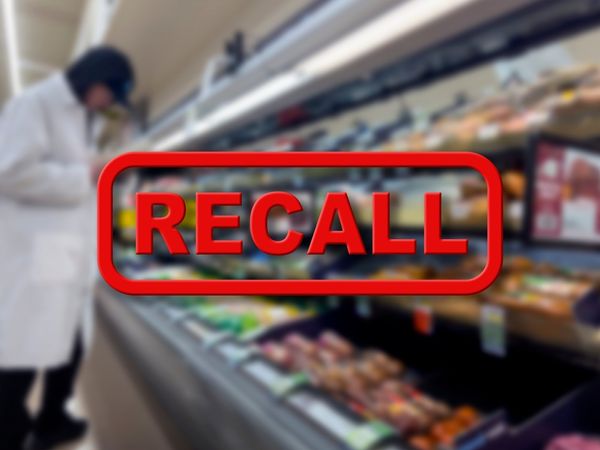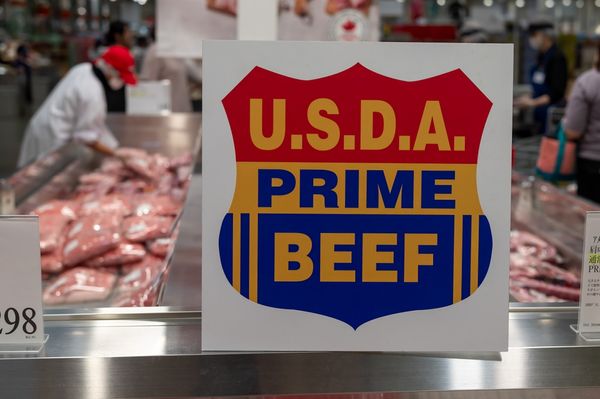
A recent food recall has been announced on nearly 10 million pounds of ready-to-eat meat. This is concerning news, especially for families like yours who prioritize the health and well-being of their loved ones. In this article, we will provide you with all the essential information about this recall and offer some tips to help protect your family from any potential risks.
Stay Informed to Stay Safe

First and foremost, let’s understand how this issue came to light. The U.S. Department of Agriculture’s Food Safety and Inspection Service (FSIS) discovered the presence of Listeria, a harmful bacteria, during routine testing. BrucePac, the company responsible for the production of the ready-to-eat meat, has recalled nearly 10 million pounds of their products. However, the specific store brands affected by the recall have not been named yet. This makes it challenging for families across the nation to ensure their safety against foodborne illnesses.
Key Details about the Recall

Although there is still much to uncover about this recall, FSIS has shared some crucial details to help prevent the spread of foodborne illnesses. It is believed that some of the contaminated meat may have already made its way to store shelves and could be in people’s refrigerators or freezers.
Recall Dates and Distribution

The recall applies to all ready-to-eat meat and poultry handled and packaged between June 19, 2024, and October 8, 2024. These products were distributed to various establishments and distributors across the country. Please take note of these dates and double-check any relevant purchases during this period.
Processed Meat: The Main Concern

The United States Department of Agriculture (USDA) has provided a list of product codes associated with the recall. Distributors have been advised to remove these ready-to-eat meat and poultry products from their shelves. While the specific brand names have not been disclosed in the USDA report, it includes items such as deli meat, hot dogs, and other processed meat products. Frozen meats, on the other hand, do not seem to be affected at this time.
What Should You Do?

If you suspect that you have any meat from the recall in your possession, it is best to err on the side of caution and dispose of it properly. Avoid consuming processed meats and ensure that any steaks or poultry you prepare are cooked thoroughly to eliminate any bacteria, minimizing the risk of Listeria.
Understanding Listeria Bacteria

The word “recall” can be unsettling, but having a better understanding of foodborne illnesses will help alleviate some concerns. Listeria is a bacteria that can cause severe illness, but there is a silver lining. It primarily affects newborns, individuals with compromised immune systems, and those aged 65 and older. If you or someone in your family falls into these categories, it is crucial to exercise extra caution.
Signs and Symptoms of Listeria

Stay vigilant and be aware of the symptoms associated with Listeria infection. These may include fever, chills, muscle aches, nausea, or diarrhea. It is important to keep in mind that these symptoms can take up to 30 days to appear. If you suspect that you or a family member has been exposed to Listeria through these recalled products, we urge you to consult your primary care provider.
Stay Updated and Informed

While there are still some uncertainties surrounding this recall, researchers are diligently investigating the matter. For the most up-to-date information about this recall and others, we recommend regularly checking the USDA.Gov page and USDA for further details.
Remember, your family’s health is of the utmost importance. By staying informed, exercising caution, and following the recommended guidelines, you can help keep your loved ones safe from any potential foodborne risks.





